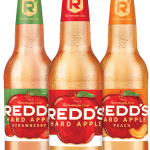Ever wondered if you can indulge in deviled eggs without worrying about gluten? You’re not alone. Deviled eggs are a classic appetizer, loved for their creamy filling and delightful taste. But for those with gluten sensitivities or celiac disease, knowing what’s safe to eat is crucial.
This article dives into the heart of the matter, exploring whether deviled eggs are gluten-free. We’ll break down the ingredients and preparation methods to give you the confidence to enjoy this popular dish without the gluten worry. Stay tuned to uncover the truth behind deviled eggs and gluten.
Key Takeaways
- Deviled eggs can be a gluten-free option when prepared with attention to ingredient selection and avoiding cross-contamination, making them suitable for individuals with celiac disease or gluten sensitivities.
- Essential ingredients like eggs, mayonnaise, and mustard are naturally gluten-free, but it’s crucial to check labels for any gluten-containing additives or cross-contamination warnings, especially with products like flavored mustards and mayonnaises.
- Cross-contamination in the kitchen, through shared utensils, cookware, and surfaces, poses a significant risk for gluten exposure when preparing gluten-free dishes, emphasizing the need for strict kitchen hygiene practices.
- Creativity in filling and topping choices can enhance the flavor and presentation of gluten-free deviled eggs, with options such as avocado & lime, bacon & chives, and paprika & dill, ensuring they remain a delicious and safe choice for everyone.
- Vigilance in selecting certified gluten-free ingredients and being informed about potential sources of gluten in condiments and garnishes are key to successfully preparing and enjoying gluten-free deviled eggs.
Understanding Gluten and its Effects
When diving into whether deviled eggs are gluten-free, it’s crucial to first grasp what gluten is and the impact it can have on some individuals. Gluten is a group of proteins present in wheat, barley, and rye. For most people, consuming gluten is perfectly safe. However, for those with celiac disease, gluten sensitivity, or wheat allergy, ingesting gluten can lead to serious health complications.
Celiac disease is an autoimmune disorder in which the ingestion of gluten leads to damage in the small intestine. According to the Celiac Disease Foundation, this condition affects 1 in 100 people worldwide. Symptoms vary but can include digestive discomfort, anemia, and fatigue. For people with this condition, avoiding gluten is not a dietary choice but a medical necessity.
Gluten sensitivity, though less severe than celiac disease, still causes discomfort, with symptoms ranging from bloating and gas to headaches and joint pain when gluten is consumed. It’s important to note that non-celiac gluten sensitivity does not cause the intestinal damage seen in celiac disease but can adversely affect quality of life.
For those with wheat allergies, the body’s immune system reacts to proteins found in wheat, which can lead to a range of symptoms, from skin rashes to respiratory issues. While wheat allergy often gets lumped in with gluten-related disorders, it’s distinct in that it doesn’t necessarily involve a reaction to gluten but rather to one of the other proteins found in wheat.
To learn more about celiac disease and its symptoms, the Celiac Disease Foundation provides comprehensive resources and support for those affected or looking to learn more (Celiac Disease Foundation).
Understanding these conditions is key when considering your diet and the role gluten-free foods, like deviled eggs, may play in managing symptoms or dietary restrictions.
Ingredients in Deviled Eggs
When you’re on the hunt for gluten-free appetizers, deviled eggs often come up as a safe and delicious option. Understanding the ingredients in deviled eggs is crucial for anyone adhering to a strict gluten-free diet or managing gluten-related disorders. Here’s a breakdown of the typical components found in this popular dish:
- Eggs: The star of the show, eggs are naturally gluten-free and packed with protein. They provide a solid base for various fillings.
- Mayonnaise: Most commercial mayonnaises are gluten-free, but it’s essential to check the labels for any gluten-containing additives or cross-contamination warnings. Opting for a certified gluten-free mayonnaise is your safest bet.
- Mustard: Mustard adds a tangy kick to the filling. While pure mustard is generally gluten-free, it’s important to verify that no gluten-containing ingredients have been added to flavored mustards.
- Paprika or Cayenne Pepper: Used for seasoning and garnish, these spices are naturally gluten-free. However, cross-contamination during processing can be a concern with spices, so look for those certified gluten-free.
- Pickle Relish or Chopped Pickles: For an extra zing, some recipes include pickle relish. Check that the relish doesn’t contain modified food starches derived from wheat, or better yet, chop your own pickles to ensure they’re gluten-free.
- Salt and Pepper: Simple seasonings like salt and pepper are naturally free from gluten.
For individuals sensitive to gluten, the devil is in the details. Paying close attention to each ingredient’s gluten content ensures that your deviled eggs remain a safe choice for everyone to enjoy. For further information on safe gluten-free eating, visiting reputable sites such as Celiac Disease Foundation can provide additional resources and peace of mind.
Each component plays a pivotal role in the overall taste and texture of the dish, making it a crowd-pleaser. Being mindful of the need for certified gluten-free ingredients when preparing deviled eggs can make all the difference for those with dietary restrictions. Incorporating fresh, high-quality ingredients not only enhances the flavor but also ensures that your gluten-free deviled eggs are safe and enjoyable for everyone at your table.
Potential Sources of Gluten Contamination
When ensuring your deviled eggs are gluten-free, vigilance is key. Gluten contamination can occur in several unexpected ways, making it crucial to be aware of potential sources.
Cross-Contamination in the Kitchen
One of the primary concerns is cross-contamination in the kitchen. This can happen when:
- Utensils and Cookware: The same utensils, cutting boards, or cookware used for gluten-containing foods are used for preparing your deviled eggs without thorough cleaning.
- Cooking Surfaces: Surfaces like grills or countertops where gluten-containing foods have been prepared, can retain gluten particles, contaminating your gluten-free ingredients.
To minimize these risks, designate specific kitchen tools and areas for gluten-free food preparation or ensure thorough cleaning before use.
Ingredients and Additives
While the main ingredients in deviled eggs are naturally gluten-free, additives or processed ingredients might not be. Be wary of:
- Mayonnaise: Some brands may use additives that contain gluten. Always opt for versions that are labeled gluten-free.
- Mustard and Pickle Relish: Double-check these condiments as they can sometimes contain gluten, depending on how they are processed or what additives are used.
Reading labels carefully is crucial. If in doubt, visit the manufacturer’s website or reach out directly for clarification.
Garnishes and Seasonings
Garnishes and seasonings can also be a hidden source of gluten. Pre-made seasonings blends and some garnishes might be cross-contaminated or contain gluten-containing ingredients. Opting for fresh or certified gluten-free options is safest.
Eating Out or Purchased Prepared Deviled Eggs
When eating out or buying prepared deviled eggs, cross-contamination is a significant concern. Not all kitchens follow strict gluten-free protocols. It’s vital to inquire about their preparation practices or better yet, stick to establishments known for their gluten-free options. The Celiac Disease Foundation offers a guide on eating gluten-free when dining out that can be a helpful resource.
Being aware of these potential sources of gluten contamination can help ensure your deviled eggs remain safe to eat for those with gluten sensitivities or celiac disease. Always prioritize caution and when possible, prepare your meals at home using certified gluten-free ingredients.
Making Gluten-Free Deviled Eggs
When embarking on preparing gluten-free deviled eggs, your primary concern should be ensuring that all ingredients used are free of gluten. Fortunately, with a bit of knowledge and vigilance, you can create delicious deviled eggs that everyone can enjoy without fear of gluten contamination.
Firstly, let’s talk about the basics. Eggs, in their natural form, are gluten-free. The challenge comes when considering the additives for deviled eggs, such as mayonnaise, mustard, and potentially relishes or spices. To ensure these ingredients are safe, opt for products labeled as certified gluten-free. Brands like Hellmann’s and French’s offer gluten-free options for mayonnaise and mustard respectively. For extra safety, check their ingredient lists for any hidden sources of gluten.
Another critical step is to consider the tools and surfaces you’re using to prepare your deviled eggs. Cross-contamination can easily occur if these surfaces have previously been in contact with gluten. Using separate utensils and cutting boards, or thoroughly washing them before use, can mitigate this risk.
For those looking to add a bit more flavor to their deviled eggs, many herbs and spices naturally do not contain gluten. However, due to processing practices, they can be contaminated. Opting for fresh herbs or spices labeled gluten-free can add depth to your eggs without the added worry.
If you’re interested in exploring more about the safety of common condiments and their gluten-free status, a visit to Celiac Disease Foundation’s website can provide valuable insights.
Remember, vigilance and knowledge are key to successfully preparing gluten-free dishes. By meticulously selecting your ingredients and being aware of cross-contamination risks, you can enjoy safe and tasty gluten-free deviled eggs.
Enjoying Gluten-Free Deviled Eggs
Once you’ve mastered the art of preparing gluten-free deviled eggs, it’s time to dive into the joy of enjoying them. Whether you’re prepping for a special occasion or simply indulging in a delightful snack, these savory treats can be a safe, gluten-free option when done right.
First off, remember to always start with fresh, high-quality ingredients. Eggs are naturally gluten-free, but ensuring they haven’t been processed or packaged in a facility that handles gluten-containing products is key. Opt for eggs that come directly from a farm or a trusted grocery store with clear labeling practices.
When it comes to fillings and toppings for your deviled eggs, creativity is your best friend. Here are a few ideas to get you started:
- Avocado & Lime for a creamy, tangy twist
- Bacon & Chives for a savory, crunchy texture
- Paprika & Dill for a classic taste with a hint of sophistication
Each of these ingredients is naturally gluten-free, but always double-check packaging for any hidden gluten or cross-contamination warnings.
Presentation plays a big part in the enjoyment of your gluten-free deviled eggs. Consider garnishing your platter with fresh herbs or using a piping bag to fill the egg whites for a professional touch. Not only does this make your dish visually appealing, but it also elevates the entire eating experience.
For those of you looking to dive deeper into gluten-free cooking, especially when it comes to mastering appetizers like deviled eggs, I recommend checking out resources such as the Celiac Disease Foundation’s website for valuable tips and reliable gluten-free guidelines. Their comprehensive guide can be a goldmine for anyone on a gluten-free journey.
Remember, the key to enjoying gluten-free deviled eggs lies not only in the preparation but in ensuring all components, from the mayonnaise to the garnishes, align with gluten-free standards. With a little care and creativity, you can turn this classic appetizer into a safe, gluten-free delight that everyone can enjoy.
Conclusion
Crafting delicious gluten-free deviled eggs is entirely within your reach. Remember, the key lies in choosing fresh ingredients and being vigilant about avoiding gluten contamination. Whether you’re experimenting with avocado & lime or keeping it classic with bacon & chives, always ensure your additives are safe for a gluten-free diet. Don’t forget to give your deviled eggs that extra flair with professional presentation touches like a piping bag and fresh herb garnishes. With these tips, you’re well-equipped to prepare deviled eggs that not only taste fantastic but also cater to gluten-free needs. For any further guidance, resources like the Celiac Disease Foundation’s website are invaluable. Happy cooking!
Frequently Asked Questions
What are the key components of making gluten-free deviled eggs?
To make gluten-free deviled eggs, start with fresh, high-quality eggs. Ensure all ingredients, including mayonnaise and garnishes, adhere to gluten-free standards to avoid potential gluten contamination. Creative, naturally gluten-free fillings and toppings like avocado, bacon, and paprika can enhance the flavor.
How can I ensure my ingredients are gluten-free?
Check packaging labels for gluten-free certification and be cautious of hidden sources of gluten in ingredients. Consulting resources like the Celiac Disease Foundation’s website can provide further guidance on selecting gluten-free products and avoiding cross-contamination.
What are some creative fillings for gluten-free deviled eggs?
Creative fillings for gluten-free deviled eggs include combinations like avocado & lime, bacon & chives, and paprika & dill. These options are naturally gluten-free but check for hidden gluten in any additional ingredients.
How can I present gluten-free deviled eggs attractively?
For an attractive presentation, use a piping bag to fill the egg whites smoothly. Garnish with fresh herbs, spices, or additional toppings of your choice. Ensure the presentation aligns with gluten-free standards by using gluten-free garnishes and decorations.
Why is it important to use fresh ingredients for gluten-free deviled eggs?
Using fresh, high-quality ingredients ensures the best taste and texture for gluten-free deviled eggs. Fresh ingredients also minimize the risk of contamination, which is crucial for maintaining a gluten-free diet. Freshness can enhance the overall flavor profile of your deviled eggs.
Author Profile
Latest entries
Question and AnswersMarch 13, 2024Is Your Kombucha Safe? Discovering if Kombucha Has Gluten
Question and AnswersMarch 13, 2024Does Jet’s Have Gluten-Free Pizza? Your Guide to Safe and Tasty Options
Question and AnswersMarch 13, 2024Are Plantains Gluten-Free? Tips & Recipes for a Gluten-Free Diet
Question and AnswersMarch 13, 2024Are Potato Oles Gluten Free? Tips for a Safe Gluten-Free Experience











